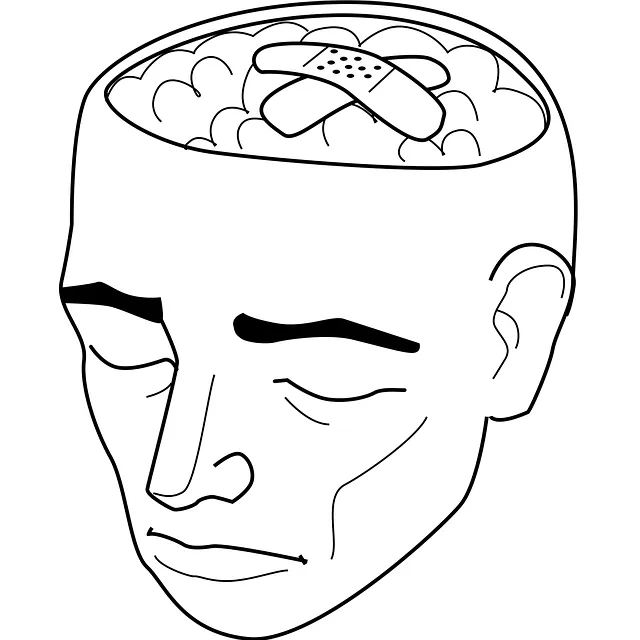The Kaiser Permanente Mental Health Access Center in Englewood focuses on destigmatizing depression through education, open dialogue, and early intervention. They offer comprehensive resources including trauma support, resilience-building initiatives, lifestyle interventions, and community outreach to prevent depression. The center emphasizes the power of social support networks and professional therapy tailored to individual needs, promoting proactive mental well-being in Englewood's community.
Depression is a serious yet preventable condition that impacts millions. This comprehensive guide, drawn from resources at the Kaiser Permanente Mental Health Access Center Englewood, offers practical strategies for preventing and managing depression. From understanding key signs and symptoms to exploring effective coping mechanisms, lifestyle adjustments, building a strong support network, and seeking professional help when needed, these insights empower individuals to take proactive steps towards mental well-being.
- Understanding Depression: Recognizing Signs and Symptoms (Kaiser Permanente mental health access center Englewood)
- Building Resilience: Coping Strategies for Daily Life
- Lifestyle Changes for Improved Mental Well-being
- Social Support Network: Connections that Foster Recovery
- Professional Help: When and How to Seek Therapy
Understanding Depression: Recognizing Signs and Symptoms (Kaiser Permanente mental health access center Englewood)

Depression is a common yet serious mental health condition that significantly impacts an individual’s daily life and overall well-being. Recognizing the signs and symptoms early on is crucial for effective prevention and treatment. The Kaiser Permanente Mental Health Access Center in Englewood emphasizes the importance of awareness, aiming to destigmatize conversations around depression and encourage proactive measures.
The center’s approach includes educating communities about the various facets of mental health. They highlight that depression often manifests through persistent feelings of sadness, loss of interest or pleasure in activities once enjoyed, changes in appetite and sleep patterns, fatigue, and difficulty concentrating. By fostering open dialogues, Kaiser Permanente empowers individuals to take charge of their mental well-being. Through community outreach programs and resilience-building initiatives, they encourage positive thinking and healthy coping strategies as a proactive prevention method.
Building Resilience: Coping Strategies for Daily Life

Building resilience is a key component of preventing depression, and the Kaiser Permanente Mental Health Access Center in Englewood offers valuable resources for developing coping strategies to navigate daily life. The center’s Trauma Support Services provide an opportunity for individuals to process and overcome past traumas, which can often be a root cause of depression. By fostering a sense of safety and support, these services empower people to develop healthy coping mechanisms.
Incorporating confidence-boosting techniques is another effective strategy. Mental Health Awareness initiatives at the center encourage open conversations about mental health, reducing stigma and promoting self-care practices. Through group discussions, therapy sessions, and educational workshops, individuals gain insights into managing stress, improving mood regulation, and cultivating a positive mindset—all essential tools in the prevention of depression.
Lifestyle Changes for Improved Mental Well-being

At the Kaiser Permanente Mental Health Access Center Englewood, experts emphasize that lifestyle changes play a pivotal role in depression prevention. Adopting a balanced diet rich in fruits, vegetables, and whole grains, coupled with regular physical activity, can significantly boost mental well-being. Adequate sleep, often overlooked yet crucial, is essential for emotional regulation and stress reduction. Additionally, establishing consistent routines and practicing mindfulness techniques like meditation or deep breathing exercises can help manage symptoms proactively.
The Stress Management Workshops Organization offers valuable resources and programs tailored to the community’s needs. Through these initiatives, individuals learn effective coping mechanisms, enhance their problem-solving skills, and build resilience against depression triggers. Moreover, Community Outreach Program Implementation strategies facilitate access to mental health services, ensuring that support is readily available when needed. Boosting confidence through various activities and interactions can also serve as a protective factor, fostering a sense of purpose and self-worth.
Social Support Network: Connections that Foster Recovery

A strong social support network is a cornerstone in depression prevention and recovery. Connections with family, friends, or support groups provide individuals battling depression with a sense of belonging and understanding. The Kaiser Permanente Mental Health Access Center in Englewood emphasizes the importance of these relationships in managing mental health. Through open communication strategies, individuals can share their feelings and experiences, breaking down isolation that often accompanies depression. Strong social ties also encourage adopting self-care practices, such as engaging in activities that promote well-being and fostering positive interactions.
The power of a supportive network lies in its ability to offer practical assistance, emotional reassurance, and a fresh perspective. Members of this network can help individuals struggling with depression by providing a listening ear, offering encouragement during difficult times, and helping them access resources like the Kaiser Permanente center. Moreover, these connections foster the application of Mind Over Matter principles, where positive thinking and mindset shifts play a significant role in combating depressive symptoms. Ultimately, building and nurturing relationships is a proactive approach to depression prevention, ensuring individuals have a reliable support system ready to guide them towards recovery.
Professional Help: When and How to Seek Therapy

When facing persistent feelings of sadness, hopelessness, or lack of interest in activities that were once enjoyable, it may be time to consider professional help. Seeking therapy is a proactive step towards managing and preventing depression. At Kaiser Permanente Mental Health Access Center Englewood, experienced mental health professionals offer specialized care tailored to individual needs. This support can be especially crucial for individuals experiencing burnout, as early intervention can prevent more severe symptoms from developing.
Therapy provides a safe and non-judgmental space to explore underlying issues contributing to depression. Through evidence-based practices such as cognitive-behavioral therapy (CBT) and interpersonal psychotherapy (IPT), individuals learn coping strategies to manage their mental health effectively. Moreover, addressing self-esteem issues, often intertwined with depression, can significantly enhance one’s overall well-being. By incorporating risk management planning for mental health professionals into daily routines, individuals can better navigate life’s challenges and maintain a sense of resilience.
Depression is a serious yet treatable condition, as demonstrated by the comprehensive resources available at the Kaiser Permanente mental health access center Englewood. By understanding depression, recognizing its signs early, and adopting evidence-based strategies like building resilience, making lifestyle changes, fostering social connections, and seeking professional help when needed, individuals can effectively navigate their mental well-being. These prevention strategies empower folks to overcome challenges and lead fulfilling lives.






